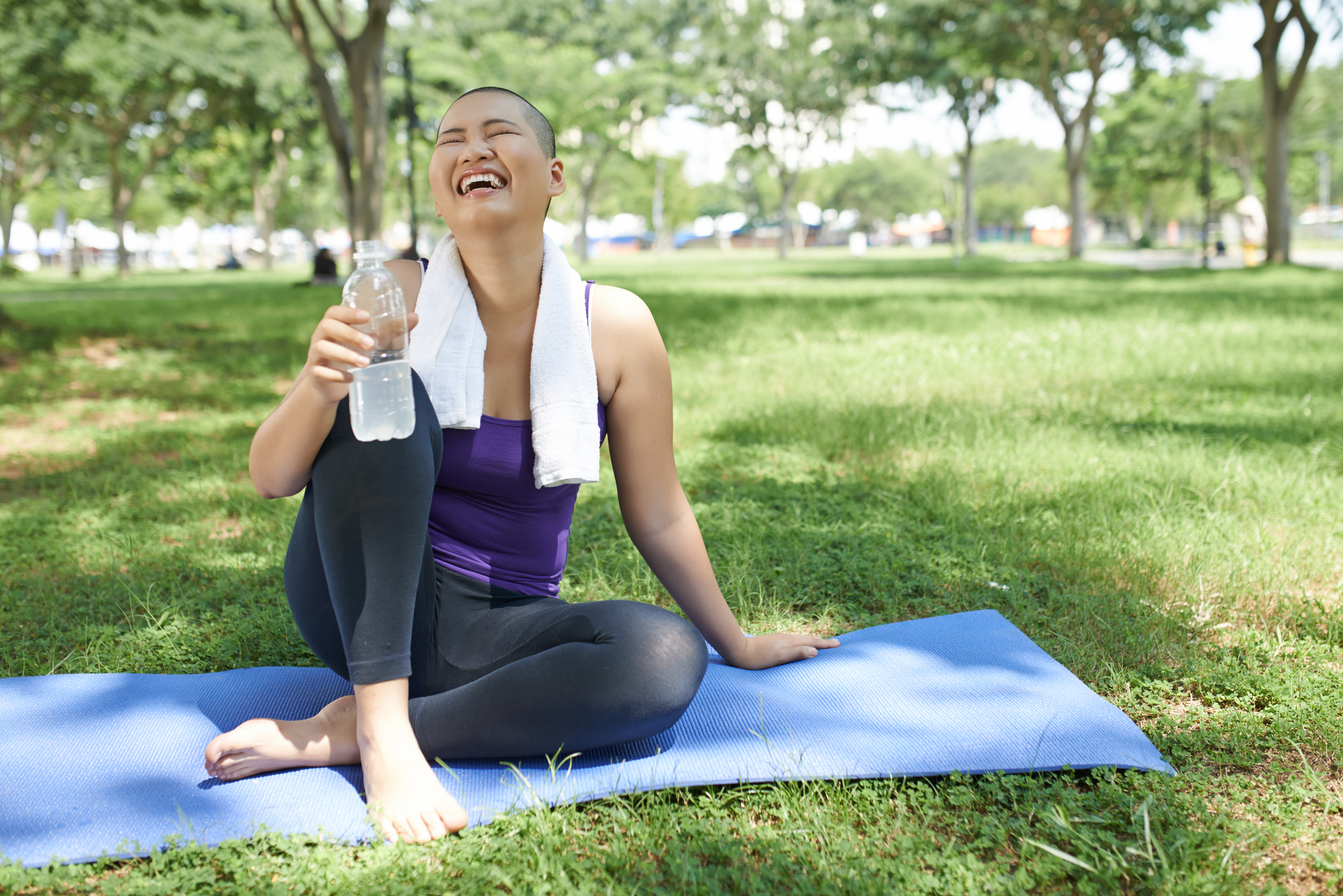Get Easy Health Digest™ in your inbox and don’t miss a thing when you subscribe today. Plus, get the free bonus report, Mother Nature’s Tips, Tricks and Remedies for Cholesterol, Blood Pressure & Blood Sugar as my way of saying welcome to the community!
How exercise kicks the immune system into gear against cancer

We’ve all heard about the positive health benefits of regular physical activity, but does this hold true for cancer patients?
Physical activity is one of the best things people can do to improve their overall health and can include a variety of activities such as walking, dancing, biking, swimming or simple household chores.
But in the past, people treated for a chronic disease such as cancer were often told by their doctors to rest and reduce their overall physical activity. This advice makes sense if the activity results in pain, shortness of breath, increased heart rate and fatigue. However, more recent research offers promising news and a solid reason to continue exercising following a cancer diagnosis…
Exercise, our immune system and cancer growth
Previous research has indicated that exercise may help improve cancer prognosis, but experts haven’t been able to pinpoint the exact reason why. One plausible theory was that exercise activates the immune system to support the body’s ability to prevent and inhibit the growth of cancer.
And that’s what researchers at the Karolinska Institutet set out to find, by examining how the immune system’s cytotoxic T cells — your body’s natural cancer-fighting cells — respond to exercise.
When they compared two groups of mice, one trained to exercise on a wheel, they saw cancer growth slow and mortality decrease in that group.
Next, they suppressed the T cell activity in both sets of mice and as expected, they saw the protective benefits of exercise halt — which confirmed the importance of the T cell involvement.
To examine how exercise impacted cancer growth they isolated T cells, blood and tissue samples. Their research initially revealed that exercise alters the production of metabolites and molecules inhibiting cancer growth while activating cancer-fighting immune cells in mice.
In other words, physical activity changes the metabolism of the immune system’s cytotoxic T cells and thereby improves their ability to attack cancer cells.
And guess what? These same researchers then examined these changes in human study participants during exercise — and the results were similar!
“Our research shows that exercise affects the production of several molecules and metabolites that activate cancer-fighting immune cells and thereby inhibit cancer growth,” says Helene Rundqvist, senior researcher at the Department of Laboratory Medicine, Karolinska Institutet and the study’s first author. “We hope these results may contribute to a deeper understanding of how our lifestyle impacts our immune system and inform the development of new immunotherapies against cancer.”
Physical activity and lower cancer risk
Hopefully, this new research into exercise as treatment following a cancer diagnosis will continue to give hope to cancer patients all over the world.
But in addition, there is strong clinical research linking higher levels of physical activity to lower risk of several types of cancer. That means regular exercise may help you avoid cancer in the first place, especially these types:
- Bladder Cancer
In 2014, the results of 11 studies concluded the risk of bladder cancer was 15 percent lower for individuals who had the highest amount of physical activity than those with the lowest level.
- Endometrial cancer
In a meta-analysis of 33 studies, physically active women had a 20 percent lower risk of endometrial cancer than women with lower levels of physical activity. Obesity is a risk factor for endometrial cancer.
- Colon Cancer
In 2016, the results of 126 studies concluded a 19 percent lower risk of colon cancer was found among individuals with the highest level of physical activity than those who were least physically active.
- Breast Cancer
A meta-analysis of 38 cohort studies in 2016 concluded that physically active women had a 12-21 percent lower risk of breast cancer than those who were least physically active.
Benefits of regular exercise during cancer treatment
Today, studies continue to show that exercise is not only safe during cancer treatment but can improve the quality of life for patients. Cancer teams encourage their patients to be physically active as much as possible before, during, and after treatment which boosts their immune system.
Exercise during cancer treatment can help:
- Lessen symptoms of tiredness
- Reduce risk of anxiety and depression
- Improve circulation to the legs and lower risk of blood clots
- Reduce the risk of heart disease
- Improve balance and lower risk of falls
- Maintain and improve physical abilities
- Lesson risk of osteoporosis
- Improve self-esteem and increased pride
- Reduce of nausea
- Weight control
Editor’s note: Discover how to live a cancer prevention lifestyle — using foods, vitamins, minerals and herbs — as well as little-known therapies allowed in other countries but denied to you by American mainstream medicine. Click here to discover Surviving Cancer! A Comprehensive Guide to Understanding the Causes, Treatments and Big Business Behind Medicine’s Most Frightening Diagnosis!
Sources:
Physical Activity in cancer prevention and survival: A systematic review — National Library of Medicine
Study shows how exercise stalls cancer growth through the immune system — EurekaAlert!
The association between physical activity and bladder cancer: systematic review — National Library of Medicine
A systematic review and meta-analysis of physical activity and endometrial cancer risk — National Library of Medicine
Leisure time physical activity and cancer risk: evaluation of the WHO’s recommendation based on 126 high-quality epidemiological studies — National Library of Medicine
Physical activity, hormone replacement therapy and breast cancer risk: A meta-analysis of prospective — National Library of Medicine
Physical Activity and the Cancer Patient — American Cancer Society












